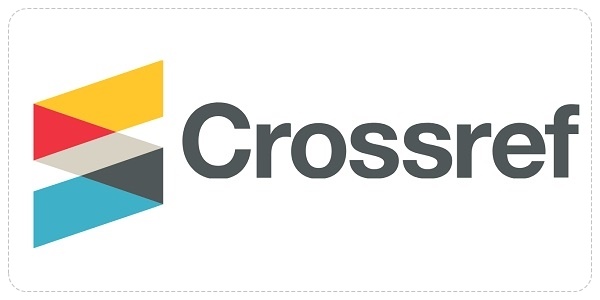RESPON MAHASISWA TERHADAP PEMBELAJARAN BAHASA INGGRIS BERBASIS BLENDED LEARNING MELALUI EDMODO DI UNIVERSITAS BATURAJA
Abstract
Abstrak
Revolusi Industri 4.0 menjadi kesempatan untuk guru bahasa agar menjadi kreatif dalam mengembangkan kemampuan berbicara siswa. Salah satu usaha kreatif yangg dapat dilakukan adalah menggunakan model pembelajaran blended learning.i Program Studi Teknologi Pendidikan, penggunaan model pembelajaran blendedd learning telah dilakukan di beberapa mata kuliah. Namun untuk mata kuliah bahasa inggris belum pernah dilakukan sebelumnya. Blended learning ini dapat dilakukann dengan berbagai media pembelajaran online, salah satunya adalah edmodo. Penelitian ini bertujuan untuk mengetahui persepsi mahasiswa terhadap pembelajaran bahasa inggris berbasis blended learning melalui edmodo di Universitas Baturaja. Penelitian ini merupakan penelitian deskriptif kuantitatif. Sampel penelitian diambil dengan metode total sampling dengan jumlah 44 orang mahasiswa program studi Teknolologi Pendidikan FKIP Universitas Baturaja tahun akademik 2018/2019. Instrumen dalam penelitian ini menggunakan angket yang dianalisis menggunakan teknik analisis deskriptif. Hasil penelitian menunjukkan bahwa 82% setuju dengan penerapan pembelajaran bahasa inggris berbasis blended learning melalui edmodo dan sisanya 18% tidak setuju pada pembelajaran bahasa inggris berbasis blended learning melalui edmodo
Abstract
The Industrial Revolution 4.0 is an opportunity for language teachers to be creative in developing students' speaking skills. One creative effort that can be done is to use a blended learning model. In the Educational Technology Study Program, the use of blended learning models has been carried out in several courses. But for English language course has never been done before. Blended learning can be done with various online learning media, one of which is Edmodo. The Purpose of this research was aimed at finding out the students' responses of English learning based on blended learning through edmodo at Baturaja University. This was a quantitative descriptive study. The sample of the study was taken through total sampling method with a total of 44 students from the Education Technology Education FKIP Baturaja University in academic year 2018/2019. A questionnaire was used to collect the data and it was analyzed using descriptive analysis techniques. The results of this study indicated that 82% of the students agreed with the application of English learning based on blended learning through edmodo, and the remaining 18% did not agree with English learning based on blended learning through edmodo.
Keywords
Full Text:
PDF (Bahasa Indonesia)References
Agustina, N., & Susanto, R. (2017, September). Persepsi Guru Terhadap Pengembangan Profesionalisme Melalui Pelatihan Media Pembelajaran Berbasis Edmodo. In Seminar Nasional Pendidikan Teknik Informatika (SENAPATI) (No. 7).
Balasubramanian, K., Jaykumar, V., & Fukey, L. N. (2014). A study on “Student preference towards the use of Edmodo as a learning platform to create responsible learning environment”. Procedia-Social and Behavioral Sciences, 144, 416-422.
Bencheva, N. (2010). Learning Styles and E-Learning Face-to-Face to the Traditional Learning. НАУЧНИ ТРУДОВЕ НА РУСЕНСКИЯ УНИВЕРСИТЕТ , 63-67.
Ekayati, R. (2018). Implementasi Metode Blended learning Berbasis Aplikasi Edmodo. Jurnal EduTech Vol. 4 No.2 , 50-56.
Ekmekçi, E. (2016). Integrating Edmodo into foreign language classes as an assessment tool. Participatory Educational Research (PER), 1(1), 1-11.
Evenddy, S. S., & Hamer, W. (2016). Edmodo As A Media to Teach Vocabulary. J. English Lang. Stud., vol. 1, no. 1 , 26-34.
Hamad, M. (2015). Blended learning Outcome vs Traditional learning Outcome. International Journal on Studies in English Language and Literature (IJSELL).Vol. 3 Issue 4 , 75-78.
Harmer, J. (2014). The practice of English language teaching. UK: Pearson/Longman.
Lalima, D. K., & Dangwal, K. L. (2017). Blended learning: An innovative approach. Universal Journal of Educational Research, 5(1), 129-136.
Mokhtar, F. A. (2017). Recognizing Possible Limitations of E-Learning Through Edmodo. Proceedings of the ICECRS, 1(1).
Monalisa, & H, A. (2013). Monalisa and H. Ardi, “Using Edmodo Educational Social Network in Teaching English for High School Sudents. J. English Lang. Teach.vol. 2, no. 1, , 220–225.
Oradee, T. (2012). Developing Speaking Skills Using Three Communicative Activities (Discussion, Problem-Solving, and Role-Playing). International Journal of Social Science and Humanity, 2(6) , 533-535.
Pemerintah Republik Indonesia, (2010). Peraturan Pemerintah Republik Indonesia Nomor 17 tahun 2010 tentang Pengelolaan dan Penyelenggaraan Pendidikan. Jakarta
Purnawarman, P., Susilawati, & W, S. (2016). “The Use of Edmodo in Teaching Writing in A Blended learning Setting,. Indones. J. Appl. Linguist., vol. 5, no. 2 , 242-252.
Redman, C., & Trapani, F. (2012). Experiencing new technolog: Exploring pre-service teacher's perseptions and reflections upon the affordances of social media. AARE APERA International COnference I. Sydney Australia.
Rizkiyah, A. (2015). Blended learning Untuk Meningkatkan Hasil Belajar SiswaPada Mata Pelajaran Ilmu Bangunan di Kelas X TGB SMK Negeri 7 SURABAYA. Jurnal Kajian Pendidikan Teknik Bangunan Vol 1 Nomer 1/JKPTB/15 , 40 - 49.
Rodrigues, P., & Vethamani, M. (2015). The impact of blended learning in the development of speaking skill. Journal of Interdisclipnary Research in Education (JIRE) , 43-67.
Rulviana, V. (2018). Implementasi Media Edmodo dalam Mata Kuliah Pengembangan Kurikulum Sekolah Dasar. JURNAL REFLEKSI EDUKATIKA 8 (2) p-ISSN: 2087-9385 e-ISSN: 2528-696X , 205-208.
Sjukur, S. B. (2012). Pengaruh Blended learning Terhadap Motivasi Belajar dan Hasil Belajar Siswa Tingkat SMK. Jurnal Pendidikan Vokasi, Vol 2, Nomor 3 , 368-378.
Wicaksono, A. (2017). Pengalaman E-Learning secara Penuh : Penggunaan Edmodo dalam Kelas Virtual. BACA: Jurnal Dokumentasi dan Informasi, 38 (1) , 63-79.
Wichadee, S. (2017). A development of the blended learning model using edmodo for maximizing students’ oral proficiency and motivation. iJET, 12(2) , 137-154.
Witherspoon.A. (2011). Edmodo...A learning Management System.
Yusoff, Z., & Ibrahim, H. (2012). Teaching public speaking in a blended learning environment. International Journal of Social Science and Humanity, 2(6) , 573-576.
DOI: https://doi.org/10.17509/pdgia.v17i2.18528
Refbacks
- There are currently no refbacks.
INDEXED BY

This work is licensed under a Creative Commons Attribution-ShareAlike 4.0 International License















